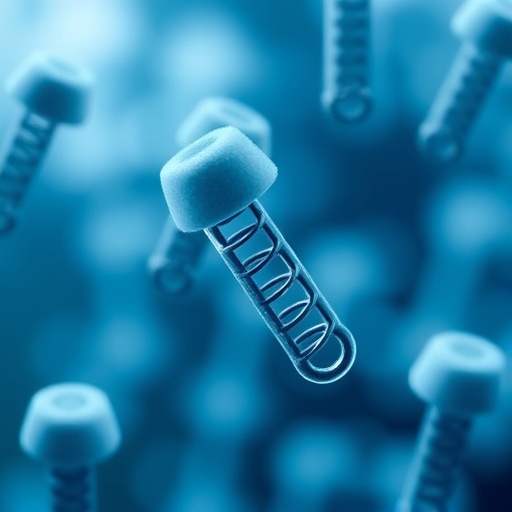In the ongoing battle against cancer, where traditional drug development faces steep challenges such as prolonged timelines and exorbitant costs, innovative strategies have become imperative. An intriguing approach gaining momentum is drug repurposing, which identifies novel anticancer effects in existing FDA-approved drugs. Among these candidates, Lanatoside C—historically prescribed for cardiac conditions—is emerging as a compelling contender with potent anticancer potential illuminated by recent scientific investigations.
This comprehensive systematic review, published in the prestigious journal BMC Cancer, meticulously consolidates preclinical research exploring the multifaceted anticancer mechanisms of Lanatoside C at the molecular level. The investigative team conducted an exhaustive search across both in vitro and in vivo studies, rigorously evaluating evidence that elucidates how Lanatoside C disrupts cancer biology. Their analysis incorporated only those studies demonstrating clear antitumor efficacy while providing mechanistic insights, ensuring high-quality and relevant data synthesis.
Findings from eighteen qualifying studies revealed that Lanatoside C consistently exerts profound cytostatic effects by impeding cancer cell proliferation. One notable action is the compound’s capacity to induce programmed cell death, or apoptosis, effectively diminishing malignant cell populations. Additionally, Lanatoside C enforces cell cycle arrest predominantly at the G2/M checkpoint—a critical juncture preventing cells from dividing unchecked, thereby stalling tumor progression in a dose-dependent manner.
At the molecular signaling level, Lanatoside C demonstrates remarkable versatility by modulating several pivotal cancer-associated pathways. Among the most significantly influenced is the Wnt/β-catenin cascade, known for its role in regulating cell growth and differentiation. By dampening aberrant signaling in this pathway, Lanatoside C disrupts the oncogenic signals that drive tumor survival and metastasis.
Simultaneously, the compound impinges on the PI3K/AKT/mTOR signaling axis, a master regulator of cell metabolism, proliferation, and survival. Interfering with this pathway sensitizes cancer cells to apoptosis and inhibits their metabolic adaptability, rendering tumors less resilient to stressors. The modulation extends to the MAPK pathway, integral to transducing extracellular signals into growth-promoting responses, and the JAK/STAT pathway, which influences immune evasion and tumor-promoting inflammation.
Notably, Lanatoside C also induces unfolded protein response mechanisms linked with endoplasmic reticulum (ER) stress, notably involving the chaperone protein GRP78. By disturbing ER homeostasis, cancer cells are pushed toward apoptosis, indicating a novel vulnerability exploitable by this repurposed drug. These multifaceted molecular perturbations establish Lanatoside C as a molecular Swiss Army knife targeting cancer cell survival networks.
The review uncovers additional mode-of-action nuances, including ferroptosis induction in lung cancer models—a form of regulated cell death characterized by iron-dependent lipid peroxidation—adding a cutting-edge dimension to Lanatoside C’s anticancer arsenal. Furthermore, in glioblastoma, Lanatoside C augments TRAIL (TNF-related apoptosis-inducing ligand) mediated apoptosis, highlighting its potential synergy with existing biologic therapies.
Preclinical animal studies reinforce the potent antitumor activity of Lanatoside C observed in cell culture models. These in vivo experiments demonstrate significant tumor growth inhibition and improved survival outcomes, bolstering the translational promise of this cardiac glycoside. Importantly, Lanatoside C’s existing FDA approval for heart conditions paves a potentially expedited path for clinical repurposing, circumventing many early-phase development barriers.
The broad-spectrum anticancer effects identified suggest that Lanatoside C could function both as monotherapy and in combinatory regimens, potentially enhancing the efficacy of conventional chemotherapies and targeted agents. However, despite encouraging preclinical data, the review underscores the indispensable need for rigorous translational and safety evaluations. Detailed pharmacokinetic and toxicological profiling in the oncology setting remain critical to ensure both efficacy and patient safety.
The repurposing of a cardiac glycoside like Lanatoside C exemplifies how revisiting established drugs can yield transformative oncology therapeutics with lower developmental risk. This approach maximizes existing pharmacological knowledge while rapidly addressing urgent unmet clinical needs in cancer treatment.
Future research directions may include delineating biomarkers predictive of Lanatoside C responsiveness, exploring optimal dosing strategies, and investigating synergy with immunotherapies. Such studies would refine patient selection and treatment protocols, ultimately enhancing outcome precision.
As the global cancer burden continues to escalate, integrating repurposed drugs like Lanatoside C into oncological armamentariums could alleviate the healthcare and economic pressures brought on by lengthy drug discovery cycles. This strategic repositioning promises to accelerate access to innovative treatments for diverse patient populations.
This substantial body of preclinical evidence heralds Lanatoside C as a promising candidate to diversify and strengthen current cancer therapy pipelines. Its ability to target multiple, critical cellular pathways positions it uniquely in the landscape of drug repurposing, offering hope for more effective and safer anticancer interventions.
In conclusion, Lanatoside C’s emerging anticancer profile exemplifies how disciplined research and methodical evidence synthesis can uncover hidden potentials within existing drugs. As the oncological community intensifies efforts to translate these findings from bench to bedside, this cardiac glycoside may well become a cornerstone in future multidimensional cancer therapeutics.
Subject of Research: Drug repurposing of Lanatoside C for anticancer effects, focusing on molecular mechanisms in various cancer types.
Article Title: Drug repurposing in oncology: a systematic review of anticancer effects of Lanatoside C at the molecular level
Article References:
Olayode, O.O., Oladosu, T.J., Abioye, A.I. et al. Drug repurposing in oncology: a systematic review of anticancer effects of Lanatoside C at the molecular level. BMC Cancer 25, 1601 (2025). https://doi.org/10.1186/s12885-025-15062-3
Image Credits: Scienmag.com
DOI: https://doi.org/10.1186/s12885-025-15062-3
Tags: anticancer mechanisms of Lanatoside Cantitumor efficacy of Lanatoside Capoptosis induction in cancer therapycancer cell proliferation inhibitiondrug development challenges in oncologydrug repurposing for cancerFDA-approved drugs for cancerG2/M checkpoint cell cycle arrestinnovative cancer treatment strategiesLanatoside C cancer treatmentpreclinical studies on Lanatoside Csystematic review of Lanatoside C





